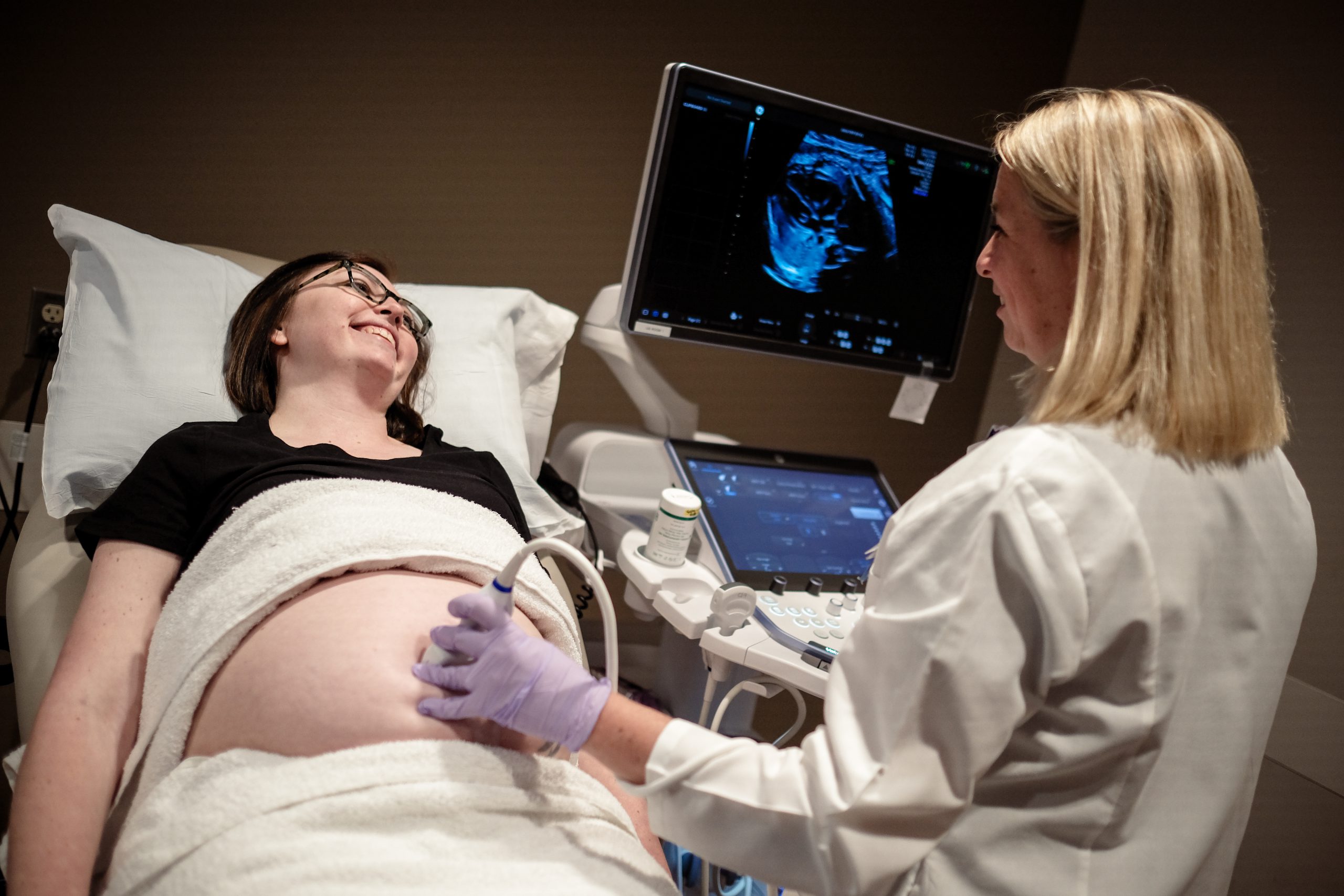Most of us understand the importance of knowing our family medical history, but how many of us take the steps to gather our family’s health history? For American Heart Month, let’s talk about screening during pregnancy and the different heart conditions that can be passed down.
What are some of the heart conditions that can be passed down?
Some common heart conditions that can be passed down through genetics are congenital heart defects (CHD), cardiomyopathies and arrhythmias. These all affect our heart’s ability to get blood to the rest of our body.

- Congenital heart defects (CHD) are the most common type of birth defect for babies with 1 in 100 babies being born with CHD. According to Stanford Medicine Children’s Health, if a close relative has CHD, it increases a baby’s chances of being born with a heart defect by at least 3%.
- Cardiomyopathy is a heart condition that impacts the heart muscles, whether it be the muscles are too thin, too thick or stiff. The most common type of cardiomyopathy that kids get is dilated cardiomyopathy where their heart muscles are too thin and can’t pump blood the way it should.
- Arrhythmia is a condition where the heart has an irregular heart rhythm. Although Arrhythmia is often a minor condition and may show no symptoms at all, if you notice your child is experiencing severe symptoms like fainting, having random bursts of their heart beating fast and chest pain, it is important to take them to be evaluated by an expert.
It is also important to keep in mind that even if a child wasn’t born with a heart disease but there is a family history of it, the child’s chances of developing the same heart disease later in life increases.
Screening tests
Screening tests like fetal echocardiogram are especially important for families expecting a baby that has a family history of heart disease. This test can be used to detect any possible heart defects or conditions. Fetal echocardiograms can be done if a heart defect is suspected during a regular prenatal ultrasound or if a close family relative has a heart defect.
Early detection of heart defects in babies is important and can be lifesaving. Not only will you and your baby need the right care team with the right specialists to support your family through pregnancy, but depending on the heart defect, treatment can begin even before the baby is born.
Ways to keep your family heart healthy
Maintaining our heart health is important for everyone, regardless of family history. Below are some things families can do to stay heart healthy.
- Annual checkups are the best for staying on top of your family’s health. Annual checkups can be done with your child’s primary care provider or a cardiac expert if your family has a history of heart disease.
- Diet is also another important factor when it comes to maintaining your family’s heart health. Have well-balanced meals with plenty of vegetables, fruits and whole grains. It is best to not have fried or sugary foods too often.
- Physical activity is especially good for maintaining heart health. This can be as easy as a family walk for 30 minutes or just running around at the park. Exercise can strengthen our heart muscles and help pump blood to the rest of the body.
- Avoid smoking and exposing your children to secondhand smoke. Smoking has been linked to an increased chance of heart disease. Cigarettes have tons of chemicals that are not only bad for your lungs, but also your heart.
- Get plenty of good quality sleep. Sleep has a huge influence on our daily choices of what we’re eating and if we’re exercising. Lack of sleep and poor-quality sleep have been linked to increased chances of heart disease, obesity and high blood pressure. Head to our sleep awareness blog for the hours a child should be sleeping based on their age and other sleeping tips.
Children’s Minnesota cardiovascular program
The Children’s Minnesota cardiovascular program treats more cardiovascular patients than any other program in the region and has some of the best outcomes in the country. Our team consists of over 200 cardiovascular professionals with a wealth of experience that are committed to providing specialized care for kids.
Watch
In honor of American Heart Month, Dr. Brad Chu, pediatric cardiologist, joined WCCO Mid-Mornings to discuss the importance of screening tests if your family has a history of heart disease.